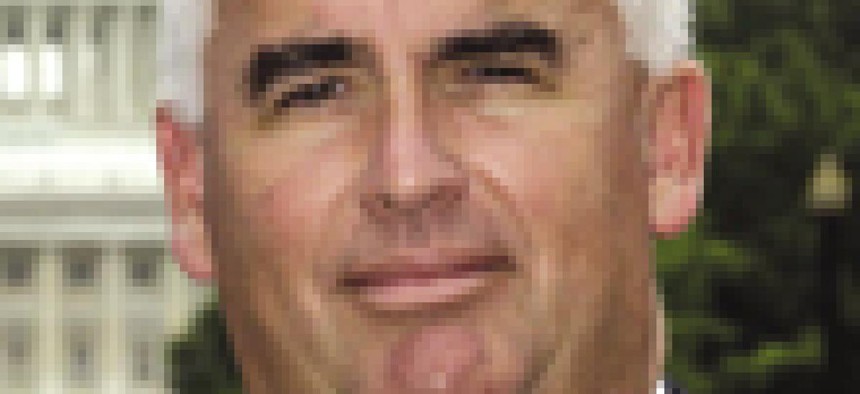Survival Guide: Loren Thompson, COO of the Lexington Institute

A professor of military strategy and a consultant to defense contractors, Loren Thompson has one foot grounded in academic theories of geopolitics and the other in the practical realities of business and war.

Loren Thompson
Henrik G. de Gyor
WT: How would you define military transformation?
Thompson: The theory underpinning it is derived in large part from the ethos surrounding the Internet. It assumes that the vast volume of information and the relative ease with which we can transmit it, manipulate it and analyze it will give soldiers ? and businessmen and priests and everybody else ? options for organizing their lives and achieving their goals that never existed before in human history.
WT: Does transformation create winners and losers among the services?
Thompson: There are traditional warfare communities that are going to lose. As of today, I think the communities we can most readily identify as losing ground under transformation are, in the Army, the artillery, the air defense and armored communities; in the Air Force, the fighter community and to a lesser extent, the manned bomber community; and in the Navy, the surface warfare and undersea warfare communities. They're all losing ground here because they depend on large, big-ticket weapon systems that the Bush administration has been reluctant to fund at the level they think is necessary.
WT: Where is the money going instead?
Thompson: The money for transformation that goes to technology is going mostly into networks, sensors, analytical tools, decision aids and computing power. It's a very ambitious concept that derives much of its appeal from the dot-com mind-set that arrived with the Internet.
The basic concept of the Internet is not of a network, but of a federation of thousands of networks that, because of relatively simple but easily functioning interface standards, appears to have a unified architecture to the users. That's what the Pentagon has in mind. They're not trying to create some vast hierarchy of information architecture. They're trying to create a series of easily interfaced, specific purpose networks that anybody can access from any place in the global system in order to get precisely what they want, when they need it, in the form that they need it.
WT: In what ways has Operation Iraqi Freedom confirmed the advantages of military transformation?
Thompson: The initial lessons the administration thought it had learned from Operation Iraqi Freedom were that joint planning and joint operations allow great synergy on the battlefield, that the integration of conventional with unconventional ? or special operations ? forces gave new options for the conduct of war. ... The experience of having a division of labor in the joint force and seeing that forces are carefully meshed together allowed them to operate as a holistic entity, rather than a series of disconnected pieces. There's no question that they operated better because they operated in a collaborative fashion.
The value of precision and networking has been demonstrated, but we are acutely aware of where the shortfalls are in bringing these concepts fully to fruition.
WT: What are some of those shortfalls?
Thompson: We have discovered over and over again during Rumsfeld's tenure that we have an inept, incompetent intelligence-gathering operation. We can't predict even the grossest and most important developments. For example, we can't find Osama bin Laden, we don't know whether Saddam has weapons of mass destruction, we don't know who's attacking us in Fallujah. It's really been quite revealing how little we knew. So in a sense, you could almost say the notion of transformation has been falsified by the awareness that if information is critical to its success, we clearly are lacking in the information we must have for victory.
WT: Does that undermine the whole notion of network-centric warfare and transformation?
Thompson: It means we must find a fix, but we have to consider the possibility that value of the network is gravely diminished by the poor intelligence we're collecting. The nicest thing you can say about the situation is that, to the extent we have intelligence, the network will allow us to maximize its value.
Web Extra! For more from this interview with Loren Thompson, go to www.washingtontechnology.com and type 153 in the Quickfind box.

